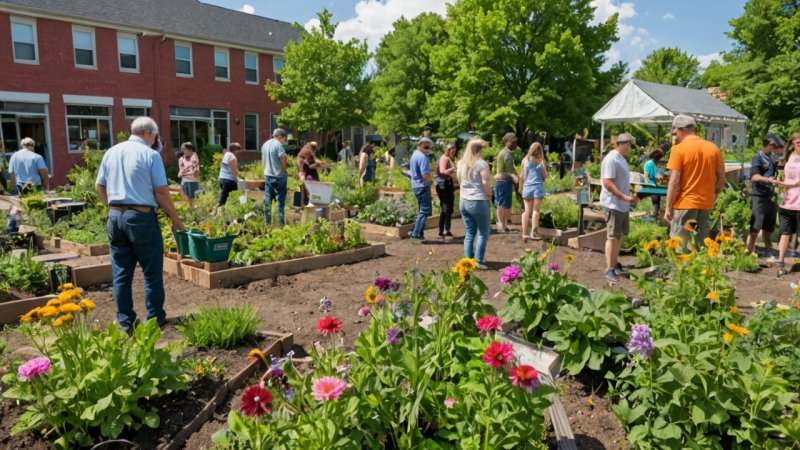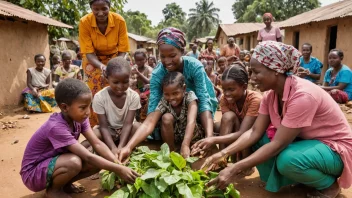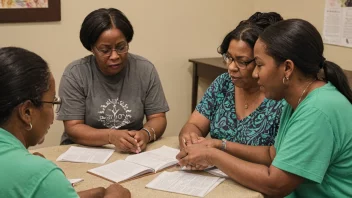What are community gardens?
Community gardens are shared spaces where individuals come together to grow fruits, vegetables, flowers, and other plants. These gardens not only provide fresh produce but also foster community relationships and promote environmental sustainability.
How do community gardens promote biodiversity?
Community gardens encourage biodiversity by creating habitats for various species. They often include a mix of native plants, vegetables, and flowers, which attract pollinators such as bees and butterflies, as well as other wildlife. This diversity helps to maintain ecological balance and supports local ecosystems.
What are the benefits of biodiversity in community gardens?
Promoting biodiversity in community gardens offers numerous benefits:
- Improved soil health: Diverse plant life contributes to healthier soils through natural processes like nitrogen fixation and organic matter accumulation.
- Pest management: A variety of plants can naturally deter pests, reducing the need for chemical pesticides.
- Increased resilience: Biodiversity allows ecosystems to better withstand changes and disturbances, such as climate change or disease outbreaks.
- Enhanced nutrition: A wider variety of plants means a more diverse diet, which can lead to better health outcomes for community members.
How can I get involved in a community garden?
Getting involved in a community garden is a rewarding experience. Here are some steps to consider:
- Find a local garden: Research community gardens in your area through local government websites, social media, or community boards.
- Attend meetings: Many gardens hold regular meetings to discuss plans and activities. Attend these to learn more and meet other gardeners.
- Volunteer: Offer your time to help with gardening tasks, maintenance, or organizing events.
- Start your own garden: If there isn’t a community garden nearby, consider starting one with neighbors or friends!
What challenges do community gardens face?
Community gardens can face several challenges, including:
- Land access: Securing land for gardening can be difficult due to urban development and land use policies.
- Funding: While this article avoids fundraising, it’s important to acknowledge that many gardens rely on donations or grants for resources.
- Community engagement: Ensuring continued participation and interest from community members can be challenging over time.
How do community gardens contribute to social justice?
Community gardens can play a vital role in promoting social justice by:
- Providing access to healthy food: They help address food deserts by offering fresh produce to communities that may lack access to grocery stores.
- Fostering community connections: These gardens bring people together across different backgrounds, promoting understanding and collaboration.
- Empowering individuals: Community gardens empower individuals by teaching gardening skills, promoting self-sufficiency, and encouraging stewardship of the environment.
What are some successful examples of community gardens?
Many cities around the world have successful community gardens that serve as models for others. Some notable examples include:
- Brooklyn Grange: A rooftop farm in New York City that promotes urban farming and sustainability.
- Los Angeles Community Garden Council: A network of community gardens that focuses on education, food access, and community building.
- Detroit Black Community Food Security Network: A community-led initiative that focuses on food sovereignty and ecological justice.
What resources are available for starting a community garden?
There are numerous resources available for those interested in starting a community garden:
- Local gardening clubs: These often provide support and advice for new gardeners.
- Online platforms: Websites like CommunityGarden.org offer guides and resources.
- Nonprofit organizations: Many nonprofits focus on urban gardening and can provide assistance.
In conclusion, community gardens are vital not only for promoting biodiversity but also for fostering community spirit and addressing social justice issues. By participating in or starting a community garden, individuals can contribute to healthier ecosystems, improve their local food systems, and strengthen their communities.






